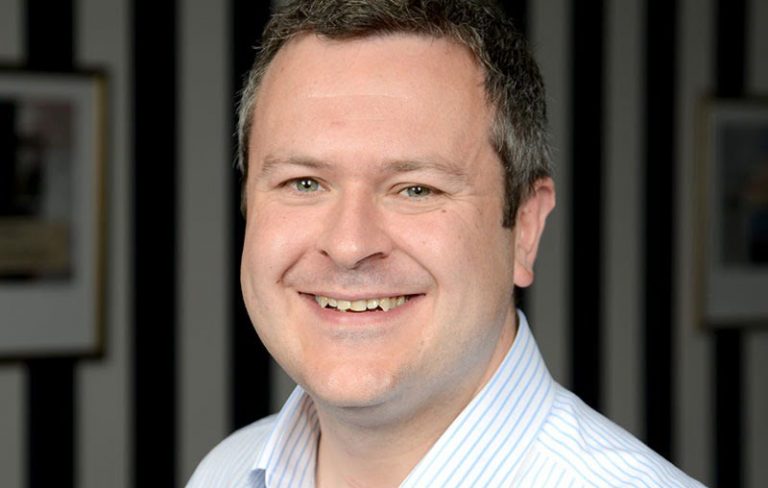Experienced farming consultant and graduate join property consultancy’s Market Harborough team
Chesterfield building to undergo extensive refurbishment following acquisition
Aggregate Industries acquires construction materials supplier
£450m deal sees West Burton power plant sold
Nottingham food factory works with M&S to fight food insecurity
A food factory in Nottingham owned by manufacturer 2 Sisters Food Group is taking part in the second phase of a ground-breaking partnership with customer M&S and FareShare, the food charity, with a further 1.5m meal servings donated to those in need.
It’s one of three 2 Sisters’ factories across the UK which will be involved in producing vegetable curry, carrot & coriander soup and pizza meals using surplus ingredients which might otherwise go to waste, such as fresh vegetables.
The meals are nutritionally balanced to serve between two and four people and all meals will be freshly prepared with a guarantee of four days life from the day of donation. The meals are made at company factories in South Wales (RF Brookes), Nottingham (Pizza Factory) and Grimsby (Recipe Dish).
According to the latest Food Foundation tracker, 15% of UK households – equivalent to approximately eight million adults and three million children – have experienced food insecurity in 2024, as the cost-of-living crisis continues to hit the pockets of low-income families. It is estimated this figure has doubled in the last three years. Ranjit Singh Boparan, founder and President of 2 Sisters Food Group, said: “We continue to do the right thing by partnering with our customer M&S and creating these nutritious meal servings to help those that need it most. This second phase utilises surplus ingredients and what a better way to bring some good from this by creating quality food that have the M&S seal of approval. Helping to feed everyone in need with a nutritious meal is central to how we now think at our business and I am delighted to be leading on this with our partners.”Seven million people have used GenAI for work
Vice-chairmanship of ethics committee awarded to East Midlands accountant
East Midlands accountant and ethics adviser Stuart Brown from Duncan & Toplis has been appointed as vice-chair of the Ethics and Advisory Committee of the Institute of Chartered Accountants in England and Wales for the next three years.
Mr Brown, who has been a member of the ICAEW’s Ethics Advisory Committee since 2021 and the organisation’s Members and Commercial Board since 2023, is also a Director and Head of Technical and Compliance at Lincolnshire-based Duncan & Toplis.
He said: “Over recent years the accountancy profession has justifiably been under intense scrutiny because it is essential that accountants are reliable, honest and trustworthy professionals with absolute integrity. I believe that ethics is the foundation of being a Chartered Accountant and we must all play our part in upholding the reputation of our profession.
“It is a great honour to be selected as the vice-chair of this committee, helping to maintain the standards for accountants around the world.”
Damon Brain, CEO of Duncan & Toplis, said: “It says a lot about Duncan & Toplis and our commitment to accounting ethics when a leading member of our team is appointed as the vice-chair of the Ethics Advisory Committee at the ICAEW, one of our profession’s most respected membership bodies.
“We pride ourselves on upholding the highest standards of ethics and professionalism and we’re passionate about doing right by our people, our clients and our communities. I’m sure Stuart will make an excellent vice-chair of this committee and I’d like to congratulate him on his appointment.”
Grade II listed office building sold in Leicester City Centre
Historic Derbyshire mill complex set for transformation into apartments and houses
 The mill complex was originally built as the Farnsworth Bleach Works in the 17th century, it has been used for various business over the years; most recently a printing business.
The remaining outbuildings would become commercial and business premises, adding a dynamic dimension to the revitalisation of the area. Matthew Montague said: “Because the buildings are in a varying state of disrepair and lack modern facilities, they are basically not viable for ongoing commercial use.
“With considered design the new development will fund the restoration of important historic structures and ensure the long-term preservation of the site, whilst providing great new facilities for business to work from.”
He concluded: “It’s a fantastic site, that is significant to the county’s history. We are delighted to be involved with its evolution and to help develop and preserve it for the next hundred years.”
A decision on the comprehensive scheme is expected from the district council in the coming months.
The mill complex was originally built as the Farnsworth Bleach Works in the 17th century, it has been used for various business over the years; most recently a printing business.
The remaining outbuildings would become commercial and business premises, adding a dynamic dimension to the revitalisation of the area. Matthew Montague said: “Because the buildings are in a varying state of disrepair and lack modern facilities, they are basically not viable for ongoing commercial use.
“With considered design the new development will fund the restoration of important historic structures and ensure the long-term preservation of the site, whilst providing great new facilities for business to work from.”
He concluded: “It’s a fantastic site, that is significant to the county’s history. We are delighted to be involved with its evolution and to help develop and preserve it for the next hundred years.”
A decision on the comprehensive scheme is expected from the district council in the coming months.













